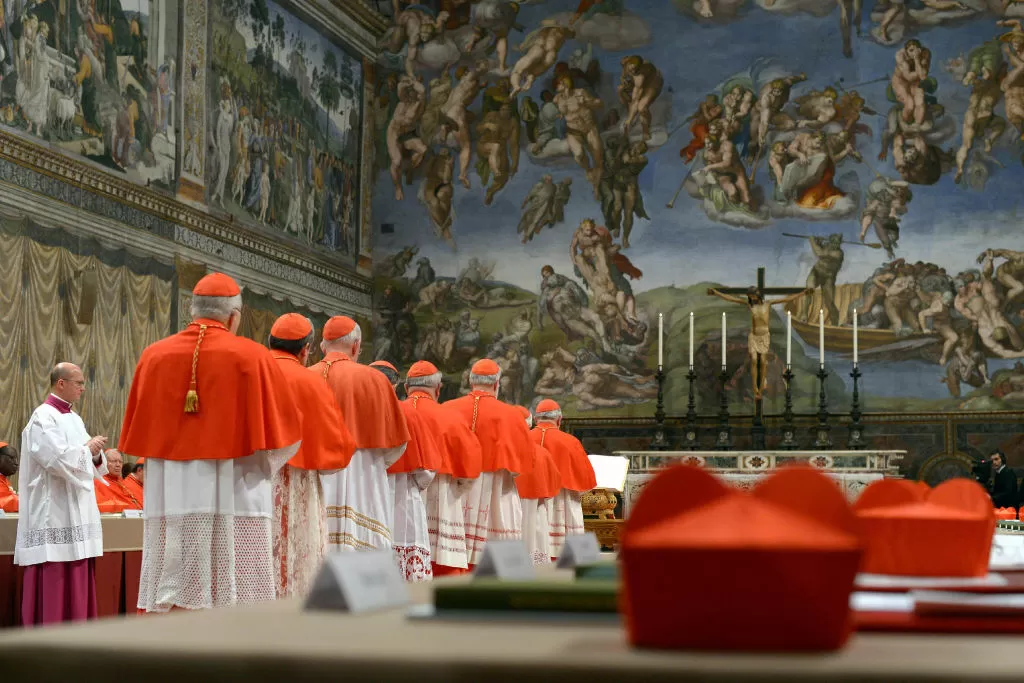Understanding the Politics of the Cardinals – How Francis May Have Influenced the Election of His Successor
The Catholic Church is currently in a state of transition as Pope Francis, the 266th Pope of the Roman Catholic Church, approaches the end of his papacy. As the world eagerly awaits the election of his successor, many are curious about the inner workings of the Vatican and the role of the cardinals in this process. The election of a new pope is a highly political and complex process, and it is believed that Pope Francis may have influenced the outcome of this election in ways that were not seen before.
To understand the politics of the cardinals, we must first understand their role in the Catholic Church. The College of Cardinals is a group of senior clergy members who advise the pope and are responsible for electing a new pope when the position becomes vacant. They are considered the highest-ranking officials in the Church, second only to the pope himself. The cardinals are chosen by the pope and are usually bishops or archbishops from different parts of the world. They are known for their wisdom, experience, and dedication to the Church.
The process of electing a new pope is known as a papal conclave. When a pope dies or resigns, the cardinals gather in the Sistine Chapel to elect his successor. This process is shrouded in secrecy and is guided by strict rules and traditions. The cardinals are not allowed to communicate with the outside world during the conclave, and they are sworn to secrecy about the proceedings. The election of a new pope requires a two-thirds majority vote from the cardinals, and the entire process can take several days.
In the past, the election of a new pope was heavily influenced by the powerful and influential cardinals who were part of the Roman Curia, the administrative body of the Vatican. These cardinals were known for their conservative views and were often seen as the kingmakers in the papal conclave. However, Pope Francis has challenged this traditional power dynamic and has worked towards decentralizing the Church’s authority.
Since his election in 2013, Pope Francis has made significant changes in the Vatican, including appointing new cardinals from diverse backgrounds and regions. He has also emphasized the need for a more pastoral and inclusive Church, focusing on issues such as poverty, social justice, and the environment. These changes have not only brought a fresh perspective to the Church but have also shifted the balance of power within the College of Cardinals.
Pope Francis’ influence on the election of his successor can be seen in the composition of the current College of Cardinals. Out of the 128 cardinals eligible to vote in the upcoming conclave, 59 were appointed by Pope Francis. This means that almost half of the cardinals who will be participating in the election were chosen by him. This is a significant shift from previous papal elections, where the majority of cardinals were appointed by the previous pope.
Moreover, Pope Francis has also appointed cardinals from regions that were previously underrepresented in the College, such as Africa, Asia, and Latin America. This has given these regions a greater voice and influence in the election of the next pope. It is worth noting that the majority of the Catholic population resides in these regions, and their perspectives and needs must be taken into consideration.
Pope Francis’ influence on the election of his successor is not limited to the composition of the College of Cardinals. His papacy has also brought about a change in the mindset of the cardinals. His emphasis on humility, simplicity, and a more pastoral approach has challenged the traditional power dynamics within the Vatican. This has led to a shift in the cardinals’ priorities, with a greater focus on the needs of the Church and its followers rather than political agendas.
In addition to this, Pope Francis’ popularity and charisma have also played a significant role in shaping the cardinals’ opinions. His message of love, compassion, and inclusivity has resonated with people all over the world, including the cardinals. This has created a sense of unity and solidarity among the cardinals, which may influence their decision in the upcoming conclave.
In conclusion, the politics of the cardinals is a complex and ever-evolving process. Pope Francis’ papacy has brought about significant changes in the Vatican and has challenged the traditional power dynamics within the College of Cardinals. His influence on the election of his successor can be seen in the composition of the current


